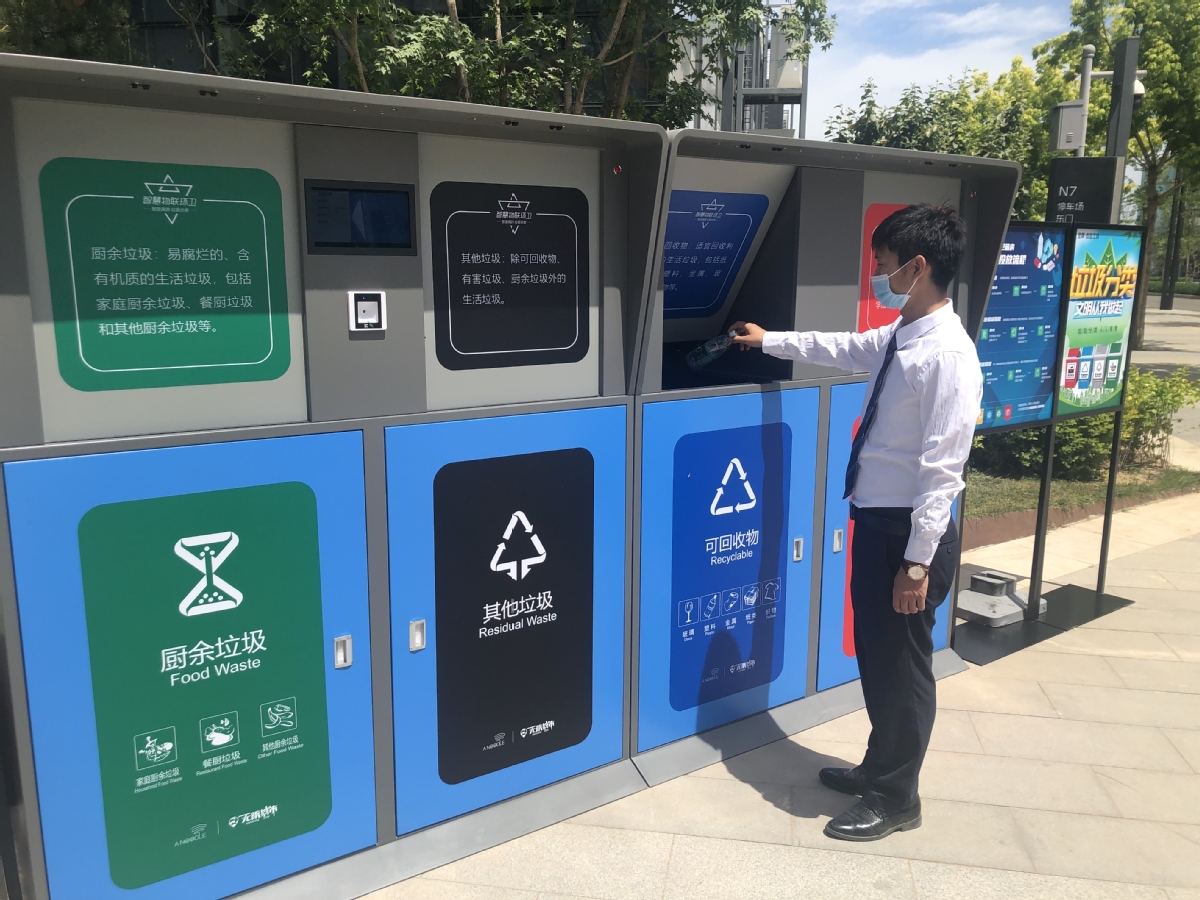Treatment of trash improved in Beijing


In an effort to create a cleaner, prettier city, the Beijing municipal government has upgraded its waste treatment process as well as related construction projects and facilities to improve the local environment.
Ma Jin, who lives near a refuse transfer station in the Zhouzhuang Jiayuan community in the capital's Chaoyang district, said he used to suffer from the noise caused by garbage trucks traveling to and from the station as well as bad smells.
After upgrades were made at the Xiaowuji station in 2017, "the noise and smell both disappeared," he said. "The best thing is that the station has provided cleaning services for all the streets nearby. Thus, we have a much better environment."
Li Zhongxu, who has lived in the community since 2015, said he used to complain to authorities because the terrible odor prevented him from opening his windows.
"I'm glad that the government has heard us and has made a difference, which is even better than our expectations," Li said.
Many people from various departments have played a role in such upgrades.
Cai Huashuai, deputy head of the facility department of the Beijing Municipal Commission of Urban Management, said Beijing has nine refuse transfer stations with a total treatment capacity of 11,200 metric tons a day. Xiaowuji can process 2,000 tons a day.
"From outside, you cannot even tell it's a building related to waste since the construction design helps it to blend in with surrounding buildings," Cai said. "From the inside, there have been many improvements made to effectively avoid creating a bad smell."
The commission said the building was equipped with fast-rolling doors for the trucks to use. All the waste conveyor belts are now covered with sealed cowlings, and the workshops have no windows.
Xu Miao, deputy head of the resource conservation and environmental protection department at Beijing's Development and Reform Commission, said the refuse transfer stations should reduce secondary pollution and traffic congestion.
"In addition, the waste treatment and environmental sanitation work should be conducted in a high-quality manner and offer safety and happiness to the residents," she said. "We should also spread the knowledge and educate the public."
Xiaowuji holds a public open day every Thursday so residents can visit the workshop and learn how it works.
Beijing currently has a designed waste treatment capacity of 32,711 tons a day.
Zhao Ming contributed to this story.
- Symphony of life in Yellow River Delta
- China unveils 2025-style police uniforms after 20 years
- Xi stresses strategic importance of work to raise minors' moral standards
- Verdict on Jimmy Lai is reached strictly in accordance with law and evidence: HKSAR govt
- Taiwan's Lai Ching-te slammed for selling war anxiety
- US urged to recalibrate its strategic perception of China




































